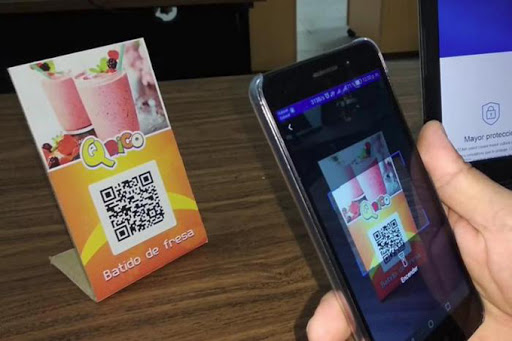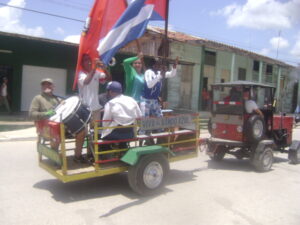The process of banking inclusion and technological sovereignty is advancing in the province of Ciego de Ávila, with over 3800 businesses, mostly non-state, enabled with QR codes for electronic commerce. However, its full implementation clashes with evasive practices and myths that persist amongst the population and some businesses.
In interviews with managers from the Territorial Directorate of the Cuban Telecommunications Company (Etecsa), the Popular Savings Bank (BPA), the Bank of Credit and Commerce (Bandec), and the State Directorate of Commerce, it was confirmed that, despite efforts and established legal frameworks, resistance to accepting online payment still exists, mainly from non-state forms of management that seek to evade fiscal control and access cash for operations in the informal market.
Reynel Luna Pérez, marketing manager for Etecsa in the territory, explained that the company is responsible for creating and enabling QR codes for state and non-state entities. He highlighted that 71 percent of the codes created in the province belong to the non-state sector.
«The processing of a QR code takes no more than 72 hours. The fundamental requirement is that the client has an email with a nauta domain», specified Luna Pérez. He clarified that, while the telecommunications infrastructure needs electrical power, the Transfermóvil application works with minimal cellular coverage (2G), without the need for access to mobile data.
He acknowledged that there are four popular councils in the municipalities of Bolivia, Chambas, and Baraguá identified as «silent zones» where using the platform is not possible, but he stressed that it is operational throughout the rest of the Avilanian territory.
Managers from BPA and Bandec were emphatic in clarifying frequent doubts.
Transfer or Online Payment? Eyne Michel Mirón Felipe, from BPA, explained the crucial difference: a transfer is an operation between natural persons, while an online payment is directed to the fiscal bank account of a business, be it state or private. «The online payment gives a bonus to the client; the transfer does not,» he emphasised.
Limits? Vlamir Rodríguez Fernández, from Bandec, was categorical: «Online payment has no limits, neither for clients nor for businesses. The excuse that ‘the transfers have run out’ is false». In contrast, transfers between natural persons do have caps: 80,000 CUP daily and 120,000 CUP monthly.
How to verify a payment? Both banks agreed that both the business and the client can verify the operation instantly by checking the account status from their mobiles or at branches, thus refuting the argument that there is no way to confirm it.
The root of the reluctance: Tax evasion and need for cash
The banking specialists were direct in pointing out the real causes for the refusal to accept digital payment. «The money from an online payment goes directly to the fiscal bank account. And that commits the business to paying taxes on those real earnings,» explained Mirón Felipe. Accepting cash, on the other hand, allows for evading this control, as «the monies, in their entirety, do not go fully to the bank».
Rodríguez Fernández, from Bandec, added another factor: the 1.5 percent commission charged per operation. For businesses that break the law and do not deposit their money in the bank (thus avoiding logistics and personnel costs to do so), this commission is seen as an unnecessary expense, rather than a solution that provides transparency and immediate security.
Furthermore, it was noted that many businesses need cash to acquire dollars on the informal market to be able to stock up on products, thus engaging in the illegal buying and selling of foreign currency.
Juan Carlos Rodríguez Pol, chief inspection specialist at the Provincial Directorate of Commerce, recalled that Resolution 93 of 2023 makes it mandatory for all economic actors to have electronic payment gateways.
«Various contraventions are applied for this reason, within the range of 2,000 to 6,000 pesos for Self-Employed Workers,» he stated. He urged the population to report incidents to the Consumer Protection Department, at telephone number 33225373, to have them resolved.
While institutions work to expand and consolidate electronic payment as part of the banking inclusion policy, the process finds its greatest obstacle in the informal economy and tax evasion. The battle is not only technological, but also cultural and one of control, where the client, by demanding their right to pay with QR, becomes a key actor for transparency.




